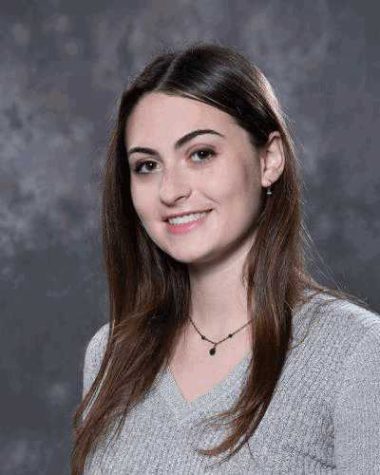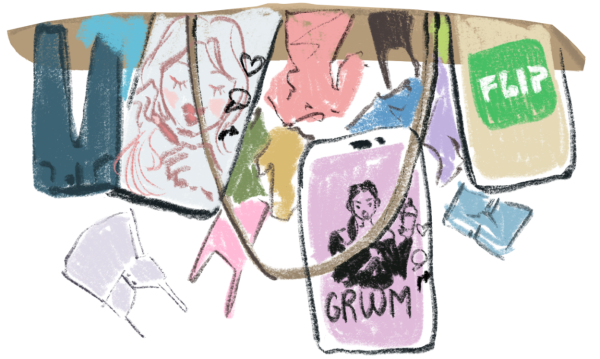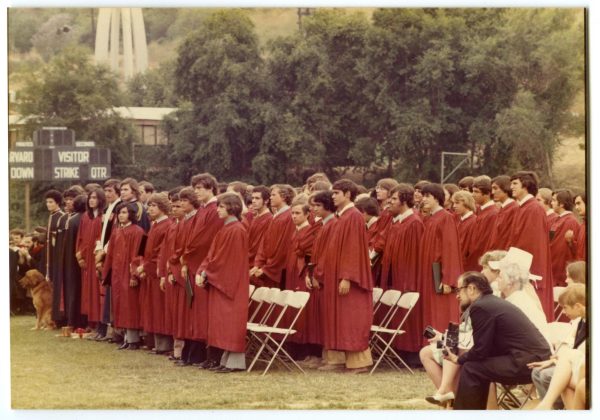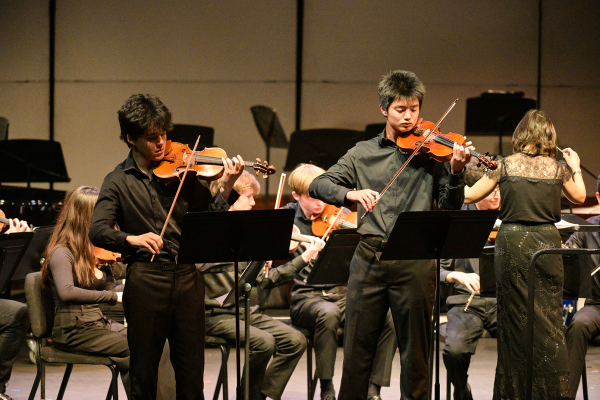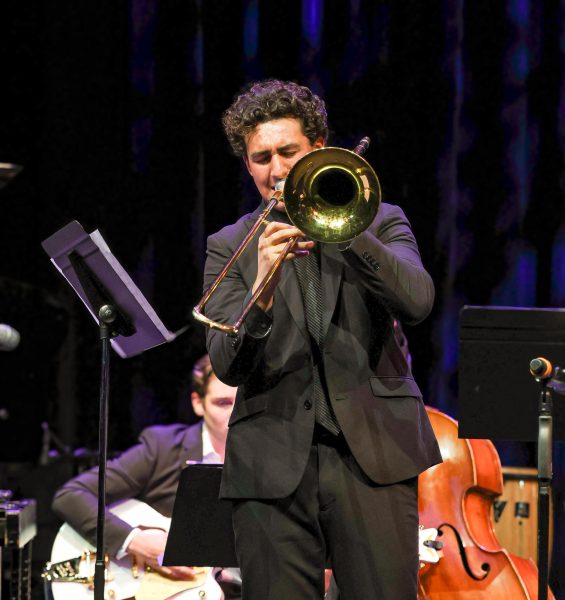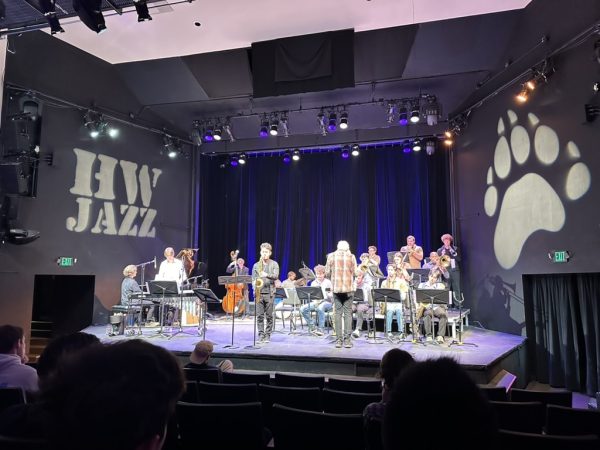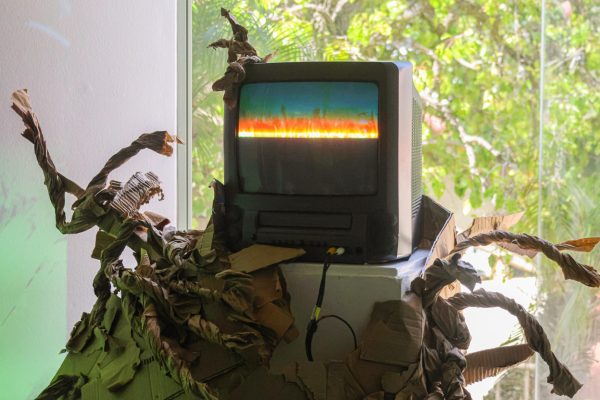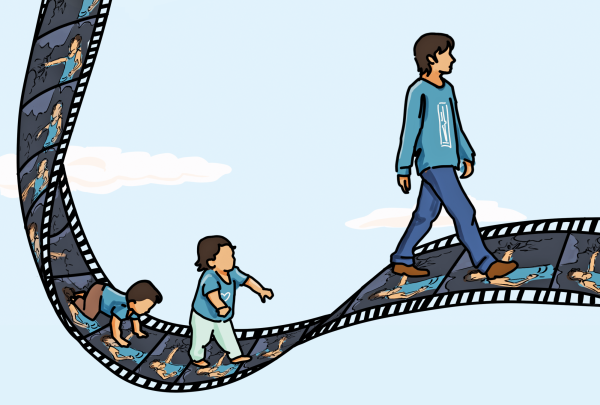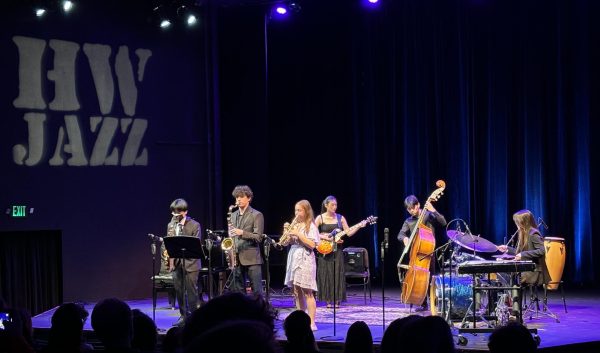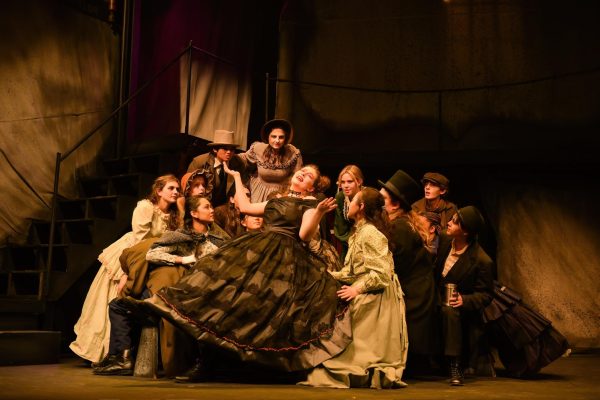“Laurel Hell” by Mitski Album Review
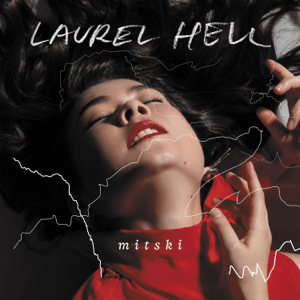
Studio album curtesy of singer and songwriter Mitski
Cover of Mitski’s recent 2022 sixth studio album “Laurel Hell ”, symbolizing her ambition to create artistic fulfillment.
February 23, 2022
On the stunning first track of “Laurel Hell,” entitled “Valentine, Texas,” Mitski sings, “Who will I be tonight?/ Who will I become tonight?” This is a fitting start to the spellbinding album, a reflection on a decade-long career and personal journey. A thematic chameleon, “Laurel Hell” varies in tone and tempo between songs, inviting the listener to become new right along with the artist. The album primarily takes on a glittery new-wave sound, which sounds fresh despite its 80s associations. It’s a departure from the sound of Mitksi’s previous work, largely rooted in the present, but this nostalgia lends the album a moving reflective quality. The listener feels that they have aged from the first song of the album to the last, and is not quite ready to say goodbye when “Laurel Hell” ends.
“Laurel Hell” is Mitski’s sixth studio album, following the wildly popular “Be the Cowboy” in 2018. That album was the go-to for my angsty freshman year meltdowns, sports bus psych-ups and oil paint experiments. Mitski has been the soundtrack of my becoming. But does this remarkable album signal the end of her career?
A major theme in “Laurel Hell” is the motivation to create for artistic fulfillment versus the pressure to create because one is on a deadline. Mitski released the single “Working for the Knife” as the first in a series of teasers for the album on October 15, 2021, and the track remains a standout among standouts. It deftly explores the central album theme, comparing the capitalistic impetus to commodify her creativity to a knife. The song’s metallic underlying beat recalls this metaphor and provides a robotic, catchy rhythm. In a low, exhausted voice, Mitski finishes the song by singing, “I start the day lying and end with the truth/ that I’m dying for the knife.”
This acceptance is mirrored in the penultimate track on “Laurel Hell,” called “I Guess.” It’s a slower track, coming down from the disco-reminiscent bop “Should’ve Been Me,” an upbeat highlight of the album. The drop in energy is jarring, leaving the listener feeling as though they’re experiencing a sugar crash. “I Guess” reads like a goodbye letter to a past lover, thanking them for their love with the perspective that only time can offer. However, it could just as easily be Mitski’s farewell to music. She expresses how her subject defines her, singing, “It’s been you and me since before I was me/Without you, I don’t yet know quite how to live.” Interestingly enough, many fans(read: me) feel the same way about Mitski’s music as she does.
One of Mitski’s remarkable skills is her ability to create music with vastly different sounds and energies but still retain a coherent creative voice. The bright new-wave echoes of “Laurel Hell” are distinct from the synth-soaked verses of “Be the Cowboy,” from the starry muddle of “Puberty 2,” to the angsty clarity of “Lush” – yet, there is an emotional throughline. Some artists have tried to branch out into new genres, and it sounds disingenuous because they’ve imbued their previous work with soul. There is an essential quality that made people interested in their music, but they fail to transfer that soul into the new genre. Mitski, however, is all soul. She is all honesty, all individuality and all viscera. This creative pressure, according to the artist herself, is one of the reasons why she struggles with creating such emotional art to be bought and sold. Mitski described her conflict in a Genius interview about one of her most popular songs ever, “Nobody.”
“I am too proud to be hysterical to other people, but the chorus ‘Nobody’ was literally me in a semi-fugue state on my hands and knees on the floor just crying and just repeating the word, ‘nobody,’” Mitski said. “And then I don’t know. I was like, ‘Let me use this pain and exploit it for my money.’”
Whether Mitski is using her pain for profit or not, it certainly lends her work potency. Her song “Last Words of a Shooting Star” from the twinkling 2014 album “Bury Me At Makeout Creek” was the first ever to bring me to tears as a freshman, and the album closer “That’s Our Lamp” left me feeling similarly raw today. Though the artist would tell you that being a sad girl is out, it is very much inevitable for anyone reckoning with the end of yet another outstandingly unique and powerful Mitski album.































